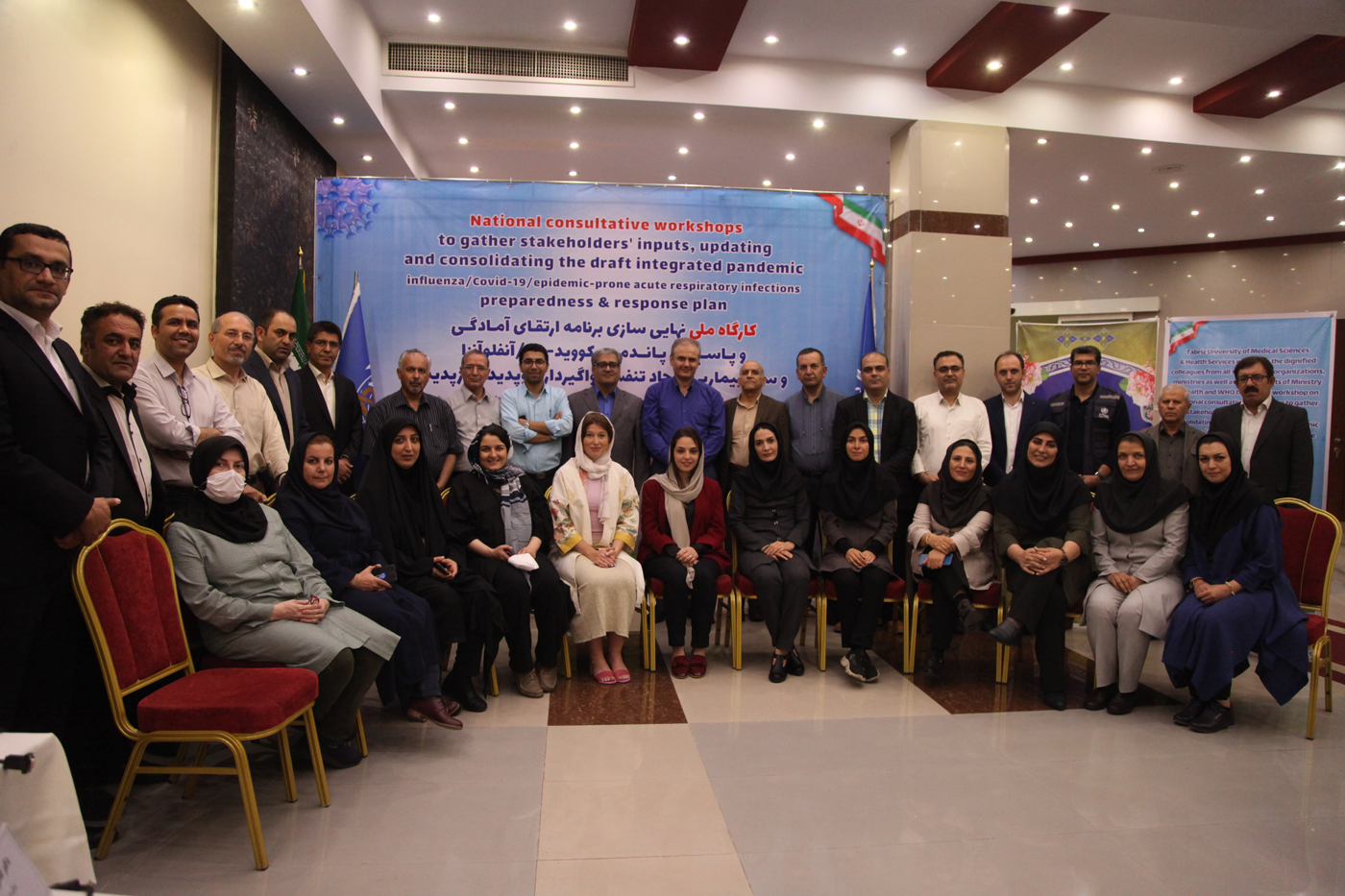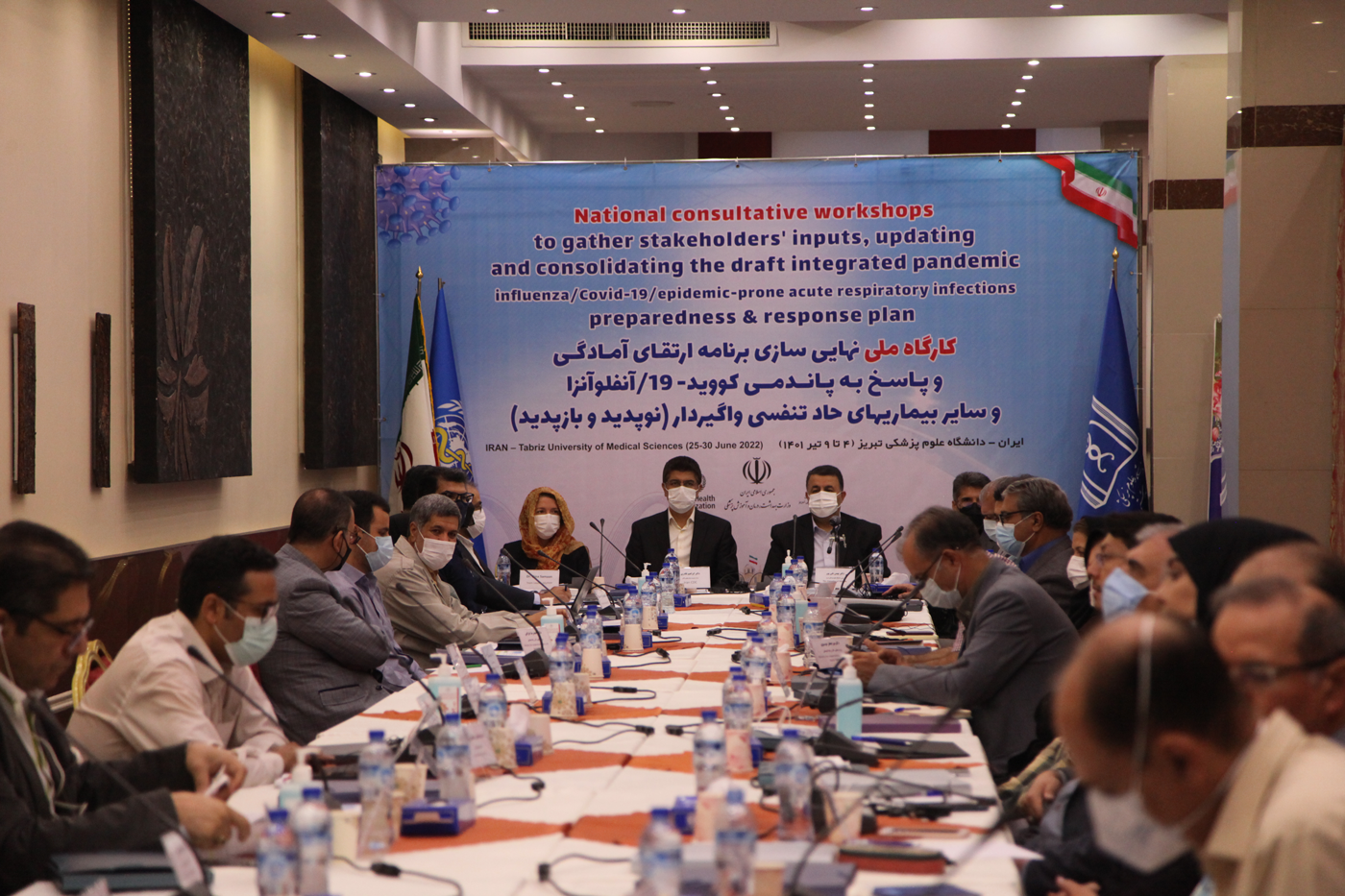 Participants in one of the workshops in Tabriz, Islamic Republic of Iran 4 August 2022 – The Ministry of Health and Medical Education (MOHME) in Islamic Republic of Iran has adopted a comprehensive approach towards drafting and updating its influenza pandemic preparedness plan.
Participants in one of the workshops in Tabriz, Islamic Republic of Iran 4 August 2022 – The Ministry of Health and Medical Education (MOHME) in Islamic Republic of Iran has adopted a comprehensive approach towards drafting and updating its influenza pandemic preparedness plan.
The approach is multi-sectorial and multidisciplinary, backed by a well-coordinated and structured mechanism focusing on multi-level capacity strengthening.
The draft works on analysing the gaps and challenges of the COVID-19 response phase to help develop a robust roadmap for the way forward and to ultimately secure endorsement of the plan from stakeholders and policy-makers.
Development of the plan was initiated early in 2019 before the COVID-19 pandemic hit. With the support of WHO, an expert was recruited to lead a technical team from MOHME to draft the plan in 3 comprehensive phases.
Drafting the plan
The first phase began by conducting a landscape analysis through a review of available national guidelines and emergency preparedness plans. A thorough revision of national capacities related to the pandemic response was conducted including face-to-face interviews with provincial counterparts of 15 identified ministries and 39 key stakeholders through a meticulous process of stakeholder mapping.
Next, international guidelines were reviewed, including those related to the International Health Regulations (IHR 2005), the joint external evaluation and WHO pandemic preparedness plans and tools. COVID-19 pandemic response experiences of other countries were also reviewed and lessons learnt from these countries were documented.
At the end of phase one a drafted plan was created followed by the identification and mapping of international partner organizations for the next stages of the process.
Workshops to finalize the plan
 Part of the workshops in Tabriz, Islamic Republic of Iran
Part of the workshops in Tabriz, Islamic Republic of Iran
The first step of the second phase involved conducting 3 consultative workshops for identified stakeholders and key organizations under each pillar. Participants from each organization were of both executive and technical profiles.
During these 2 days workshops, stakeholders discussed and articulated the key strategic actions for each pandemic phase: interpandemic, alert, pandemic, and recovery phases. They further listed respective tangible activities with timelines, the responsible agency and budget.
The second step of phase 2 was to consolidate the planned activities and outputs of the workshops through a series of consultative meetings with strategic ministries and organizations including the the Ministry of Interior. A policy brief along with the plan will be sent to the national steering committee for COVID-19 and influential policy-makers to get further support for implementation.
Testing and endorsing the plan
A national simulation exercise using, a tabletop activity, will be conducted to test the plan in the last phase of the process. It will be revised and edited according to the tangible recommendations proposed by stakeholders participating in the simulation exercise.
The final stage of this structured and methodological process is endorsement of the plan by high-level policy-makers before dissemination to all the stakeholders and sectors who contributed to the process.
The country’s experience provides an example of how a national approach can be devised, building on real-time lessons from the COVID-19 pandemic response, in drafting and updating preparedness plans for influenza and other respiratory pathogens. The exercise comprehensively considers lessons learnt from the pandemic and accounts for the integration of other respiratory viruses with pandemic potential for adaption of a more holistic approach to ensure effective preparedness for future respiratory disease pandemics.
Related links:
The Pandemic Influenza Preparedness Framework (PIP)
WHO helps strengthen Islamic Republic of Iran's influenza response








